Continuity and Connectivity in Comic Book Movies
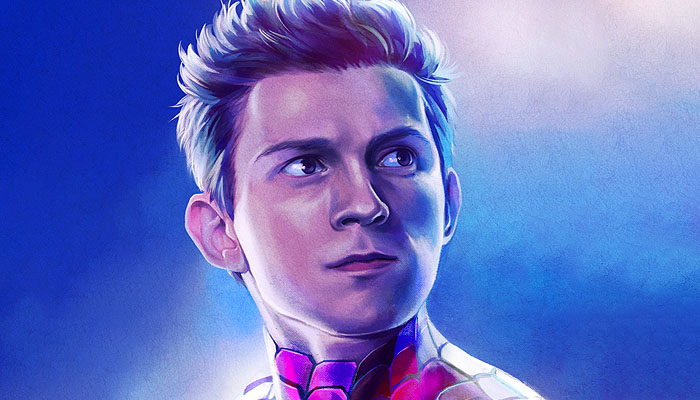
The super-hero genre is certainly the most popular category in the comic book industry, either independently or attached to extremely influential brands such as Marvel and DC. Now, writers working for both Marvel and DC Comics have created two gigantic universes as diverse as flexible. They’re also still mysterious and prone to expand even more, thanks to the imagination of their writers. Writing plots for Marvel and DC Comics seems to be challenging, especially when it’s supposed to be a process from A to B without interruption, inconsistency and incoherence.
In other words, a plot has to have continuity to not lose its spectators and confuse them in the middle of a movie. The MCU movies are mostly successful because their plots are consistent, constant and coherent. Also, they’re linked together.
For example, one scene in a movie can mention a particular event that happened in another movie with an entirely different storyline in order to create a link. This particular thing is quite subtle in comic books, so much so that readers can miss it if they’re not attentive. It’s a simple, yet cunning way of linking two or several different storylines together and get characters, either from the same dimension or not, or even universe, to interact with one another. Little by little, this connection grows bigger and bigger, extends and reaches other storylines in order to weave this giant web of connectivity.
Connectivity is very much present in the MCU and the DCEU. In the MCU, connectivity is even more pronounced and noticeable because most of the plots for most of their movies make sense, answer questions and solve plot holes. The writers manage to keep the storyline together and constant, along with the planned move of connectivity to build up the major storyline. Therefore, all the movies from the MCU are connected via little hints dropped here and there called “Easter eggs” and post-credit scenes, as they’ve been seen as the most simple, yet effective way to announce which character will make an appearance. Though an interesting plot is what holds the movie together, continuity helps by bringing coherence and consistency to it. Therefore, a plot and continuity go along together. Connectivity is whole other matter.
An extremely cunning method
The concept of continuity and connectivity is one of the most used methods by writers, mainly screenwriters, writers or comic book writers. It appears as a common denominator to create a connection point that would be able to link several stories together for several reasons: to weave a bigger and more impactful storyline, to ensure there aren’t any plot holes left unresolved and to maintain coherence throughout the storyline. Thus, a script would feel complete with all plot holes resolved, all questions answered, readers and spectators satisfied.
Regular stories use continuity and connectivity to keep going until there’s truly nothing more to add to the tale and all connections have been used to their maximum. Marvel and DC never fail to use the concept of continuity and connectivity in their stories, as it’s actually a good tactic to fully interact with the diverse and inclusive universe they’ve created. So long as the plot remains coherent enough. Not only do they use it in their comics for major storytelling points ensuring lots of striking events that would leave a mark, but they also make it a point to use continuity and connectivity in the movie adaptations to show all the connections and prove that said adaptations are faithful to the source material.
Now, crossovers can be more difficult to adapt, as they involve several characters that had their own and solo storylines for one major storyline. The Infinity War arc is one of the most important crossover created by Marvel comics, having linked so many characters and stories together in order to construct this complex and huge crossover. Each transition had to be smooth and in order. Continuity and connectivity needed to remain straight and coherent for the whole arc, from the beginning to the end. Any inconsistencies found would endanger the coherence of the entire storyline, even derail it.
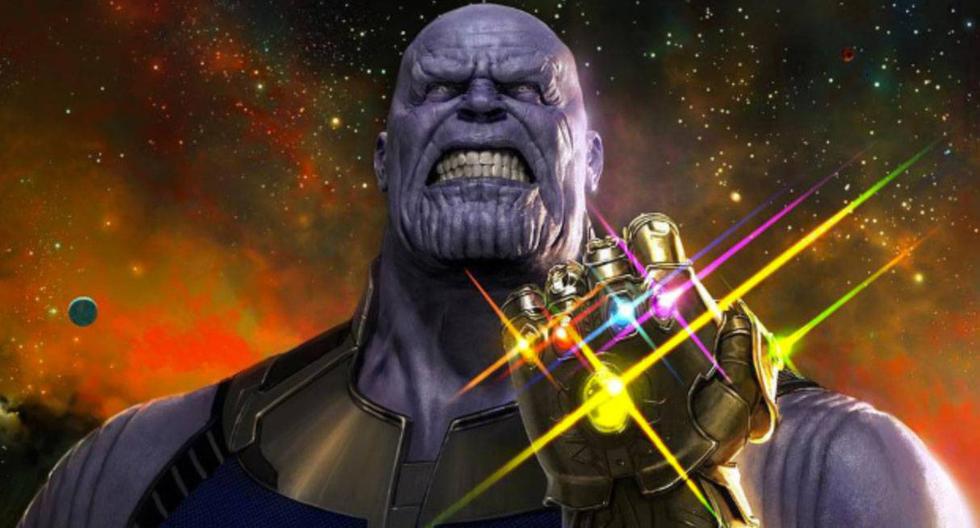
Thus, no one can claim the MCU and the DCEU are disrespecting the material from the comics. Connectivity and continuity work especially well for the MCU. However, the main issue that’s been found in this concept is its overuse in the super-hero genre. Especially in that genre. While readers and spectators always appear excited at the idea of one plot intertwining their most adored characters, it’s starting to become increasingly frustrating and annoying to follow the storyline from one movie and having to connect it to another that has come out before at the same time to fully understand what’s going on and being engaged. Though the idea is to maintain the link and coherence between all storylines, it has reached a point where the strategy of continuity and connectivity gradually becomes (or has already) problematic because writers have been banking on it for far too long to remain ‘consistent’, causes confounding issues in the storytelling perspective and raises questions that need proper answers.
“Where is it going to end?”
“How is it going to end?”
“When is it going to end?”
“Is there ever going to be an end?”
Although the super-hero genre is Marvel and DC’s main bread and butter because many writers have created a plethora of characters and have come up with several storylines to keep this industry alive, the overuse of the concept of continuity and connectivity has turned this genre into a cycle. A never-ending cycle where no one seems to see an exit to put a proper conclusion to a story and a character’s once and for all.
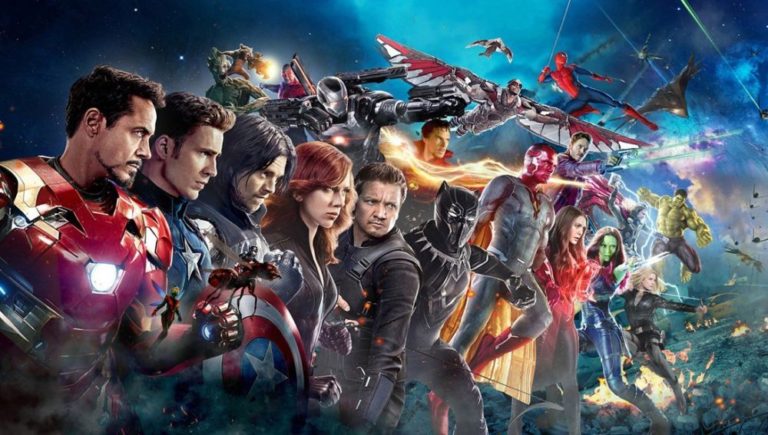
For example, the MCU movies have long mastered the concept of continuity and connectivity when their writers have understood that it worked wonders for their universe in the comics. Therefore, readers and spectators would pay close attention to details in every scene to make sure they haven’t missed anything important in the plot. Continuity in a storyline is extremely important, has to be in order for connectivity to be able to link everything. Although it’s different in comics, connectivity in their movie adaptations is more of a slow build-up process and not abrupt. This build-up in the MCU movies was smooth, in order and in line with the plots and consistency.
For example, the Iron Man trilogy, the first Thor and Captain America were both introducing the main Avengers and also setting up the first Avengers movie in one fell swoop. Natasha Romanoff’s character made its first appearance in Iron Man 2, along with Nick Fury’s, which prompted people to wonder if an Avengers storyline was coming up. From that point, connectivity was starting to set up a pattern.
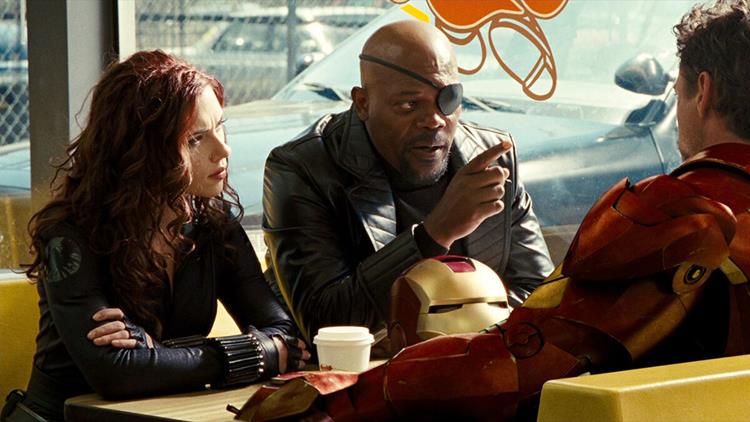
Post-credit scenes in the MCU use foreshadowing in order to further this pattern of connectivity between movies and also to bring characters together in a logical way.
- The post-credit scene from Thor (2011) showed Loki, alive and not dead as people thought after falling into the abyss at the end of his fight with Thor, shadowing Dr. Selvig to look at the Tesseract with an interesting glint in his eyes.
- The post-credit scene from Iron Man 2 (2010) showed Agent Coulson driving in the desert of New Mexico to the area where Mjolnir landed, thus revealing that Thor, Norse God of Thunder, would be appearing next.
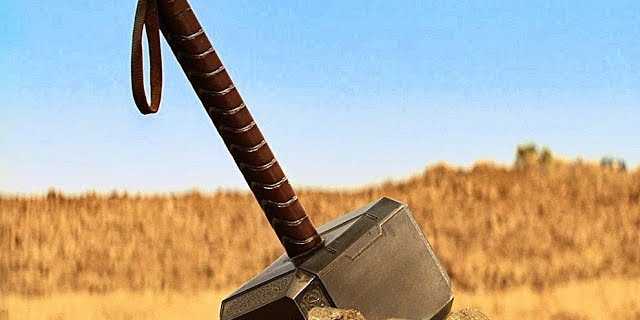
- The post-credit scene from Captain America: The Winter Soldier (2014) showed Scarlet Witch and Quicksilver in their rooms inside a secret Hydra facility, shedding light on the next enemies to fight in Avengers 2: Age of Ultron.
When the Avengers movie came out in 2012, it reunited all the most important characters that already had their solo movies, appeared because they had some purpose to serve, or were mentioned because they were actually relevant to the plot: Tony Stark, Steve Rogers, Bruce Banner, Thor, Natasha Romanoff, Clint Barton, Dr. Erik Selvig, Nick Fury, Loki. The main Avengers were all there, complementing the strategy used by the MCU with foreshadowing in post-credit scenes, connectivity by briefly mentioning characters and their abilities (Bruce Banner by Dr. Selvig, for example).
Foreshadowing, Connectivity and Continuity in the super-hero genre
Foreshadowing, connectivity and continuity are quite prevalent in Marvel Comics and their adaptations. Every MCU movie was carefully planned to build up the final battle against Thanos and his army, who probably is the most powerful enemy the Avengers and their allies have ever faced. Practically all of the main Avengers have had their solo movies to maintain continuity, connectivity and foreshadowing in their plots, which was strategic. They were introduced, had their characterization, saw their solo arcs unraveled, and thus were ready for the next stage. Iron Man, Captain America, Thor – all of them had their movies to fully establish them into the MCU. Although Black Widow (2021) should have come out before Captain America: Civil War (2016), her character still had development in the movies it was included in. Therefore, all the connections were made before the Infinity War, which was the grand and major storyline. Everything was in order with the MCU and continuity had a very nice flow. The writers have been cunning and smart into building up their storylines, which is where the DCEU has failed with the Justice League.
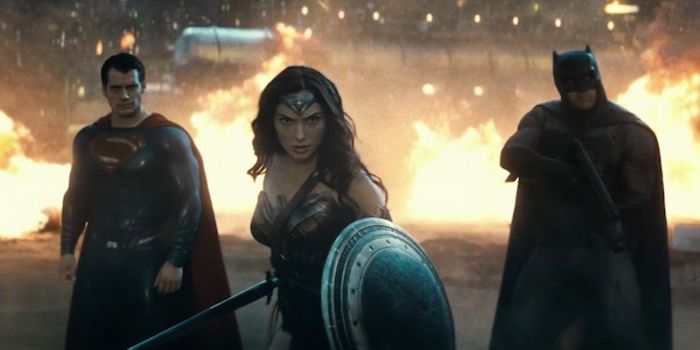
What was the biggest mistake the DCEU did with their movie adaptations of their comics? Trying to keep up with the MCU instead of doing their own thing and going at their pace. In their haste to match the MCU, they’ve refused themselves the time to plan out their movies and get the stories of their characters straight. In the DCEU movies, the concept of continuity and connectivity seems so inconsistent and out of order that the context of each adaptation is thoroughly confusing. It doesn’t hold water, wasn’t fluid, and the plot itself wasn’t even coherent to make sense of it. None of their movies were chronological and were out of order. Their plots have no real continuity because they sound nonsensical and inconsistent, thus connectivity between their movies can’t feel natural like the MCU movies. They didn’t have a real flow.
For example: Batman v. Superman: Dawn of Justice had a script that was both strange and incoherent. Too incoherent to make sense of the plot. The general idea of making Batman and Superman fight each other because of the events from Man of Steel (Superman having fought Zod and his soldiers in Metropolis, causing mass destruction on a nearly apocalyptic level and getting people killed in the process, is somehow reason enough to motivate Batman to kill the alien) until one of them dies sounds far-fetched and controversial to begin with. Not only do Batman and Superman have confusing purposes that go against their characters and their core values, but the plot for Batman v. Superman: Dawn of Justice was so contradictory that trying to establish continuity and connectivity between this movie, Justice League, Wonder Woman and Wonder Woman 1984 feels like a hassle.
Inconsistencies between plots make the connection nearly impossible, especially in franchises with multiple movies that are either prequels or sequels. Details are important to be able to create connections.
- In Batman v. Superman: Dawn of Justice, Batman having thrown away his core values and moral code makes him cruel and merciless, as Robin’s death at the hands of the Joker must have seemed so horrific and traumatizing that it was enough to turn him into a murderer – the very thing he hates the most because his world was torn upside down by witnessing his parents’ murder as a kid. He’s no longer a hero. Him being angry at Superman for being responsible for the death of so many people during the events of Man of Steel is highly hypocritical and contradictory. At Superman’s funeral, the most shocking thing is that he considered the Kryptonian “his friend” so fast that it feels like there’s an entire scene missing from the movie. These examples are some of the moments where the inconsistency of the plot is glaring.
- During the exact same scene, Wonder Woman explains to Batman that she’d exiled herself from the rest of the world after World War I. And yet, in Wonder Woman 1984, she’s seen being a hero and saving the world once again, despite claiming the opposite in Batman v. Superman. Such inconsistency was a huge mistake on director Patty Jenkins’ part, especially if Wonder Woman 1984 can be considered as a prequel to Batman v. Superman: Dawn of Justice. It compromised continuity and connectivity in such a way that the two movies mentioned can’t be linked together.
- The fact that Lex Luthor somehow knew that mixing his blood with Zod’s corpse would resurrect and turn him into the monster that is Doomsday wasn’t even explained in the movie. How did he know this? This confusing inconsistency also brings up other essential questions that compromise connectivity and continuity: how did Lex Luthor know that Batman had a vendetta against Superman? How did he know he wanted to kill the alien? How could he somehow anticipate everything, despite not even talking to both Batman and Superman to find out about their situation and make things work in his favor?
- If Batman was so shaken by Superman’s death that it made him reevaluate himself as Gotham’s Dark Knight and hero, he should have stopped branding criminals like cows and getting them killed. This should have been the most important lesson he needed to value life once again and stop killing. And yet, he still tried to brand Lex Luthor in his prison cell. Many would say that Batman still choosing to kill after Superman’s death is extremely out of character, but it can be seen as a crippling contradiction in the Justice League movie, where it’s claimed that he’s regained faith in humanity. If he did regain faith, does that mean he stopped the killing and branding?
- The only thing that tipped off Darkseid’s coming in the Justice League movie was Lex Luthor’s paranoid hallucinations – which he somehow got from his time in the Kryptonian ship. After his involvement in Superman’s death, no one would believe him about Darkseid’s incoming arrival on Earth, not even Batman because he hadn’t seen what Lex Luthor claimed to have seen (which wasn’t even shown in the movie). But there were no mentions of the Motherboxes in the previous movies, guarded by the Atlanteans, the Amazons of Themyscira and humans. Nothing concrete and legit in Batman v. Superman: Dawn of Justice could have made the connection between Darkseid and the Motherboxes. How could have Lex Luthor been taken seriously when babbling about “a new threat” coming?
Prior to Justice League coming out, nothing was hinted at Darkseid in the previous movies except for Lex Luthor’s delirious babbling. The Motherboxes were nonexistent, so was Steppenwolf. Therefore, there was no way a proper connection to Darkseid could have been made, just like there was one for Thanos in the MCU. No Easter eggs and proper hints that could foreshadow Darkseid and Steppenwolf coming to Earth.
For example, the Justice League adaptation came out before all of the members constituting the Justice League had their solo movies and were established in the DCEU – Aquaman came out in 2018 whilst Justice League was released in 2017. Aquaman’s character had its first cameo in Batman v. Superman: Dawn of Justice (2016), just like Flash and Cyborg, thus trying to establish some sort of connection and putting the concept of continuity and connectivity at work right there, but maybe it would have been better to have had their movies before Justice League (2017). Their characters could have been more established in the universe before being put in the team with all the others.
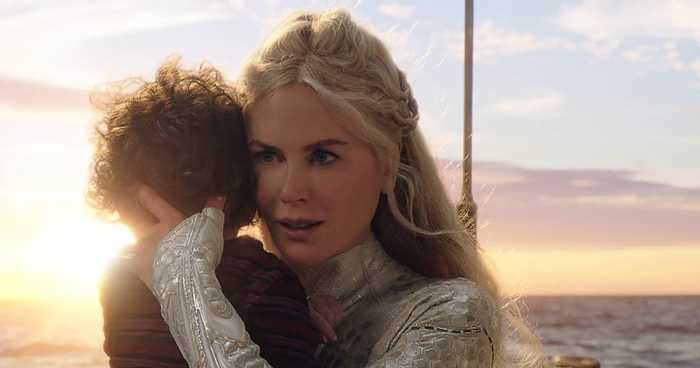
Aquaman should have come out before the crossover movie Justice League so people could have formed an idea of his character, especially when the connection would have made more sense: at the end of Aquaman, Arthur was about to get more established as king of Atlantis. Had he known about the Motherbox his people have been protecting for ages and the bloody history behind it, it would have made more sense for him to get involved. Given that Darkseid’s coming would also mean the end of Earth and all humans turning into Parademons, including Atlanteans, it would have made more sense for Arthur to accept Batman’s proposal to fight alongside others he didn’t know yet. The transition, connectivity and continuity would have been smoother, easier to follow. After embracing his role as the true king of Atlantis, it would be much more logical for Aquaman to join Wonder Woman, Batman, Flash, Superman and Cyborg in order to protect his kingdom – and Earth as well – in Justice League. His character was better written in his solo movie.
It wasn’t the case with Cyborg and Flash. These two were thinly written in Joss Whedon’s Justice League, because there hadn’t been enough time to give them a proper introduction and teach the audience more about their characters so they could form an attachment to them. Maybe having their solo movies, written to introduce these two characters in a similar way to Superman and Wonder Woman, to make the connection with Justice League before its release could have highlighted and complimented continuity, connectivity and foreshadowing? Therefore, Flash’s choice to join all the members of the Justice League at Batman’s proposal would feel genuine: he’d only been recruited just because he happened to have been caught on camera using his super speed.
Had he and Cyborg had their solo movies before Justice League, they could have been more fleshed out. They could have had post-credit scenes showing them either meeting Bruce Wayne for Flash when he’s about to get recruited, establishing a link with the Motherbox for Cyborg.
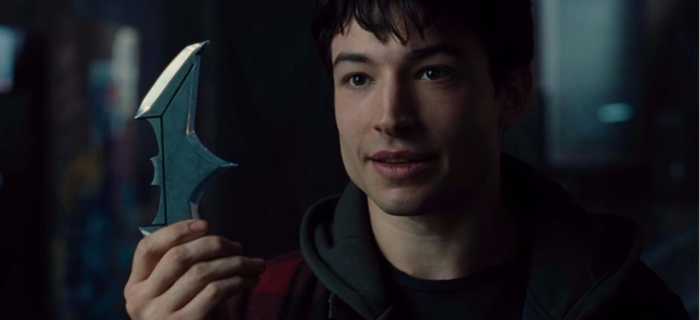
Even so, the plot would have had to be engaging and logical so continuity and connectivity could have worked. The Flash and Cyborg movies would have had to make connections between the other characters in order to work out. Thus, their movies could have been successful. Had it been more explicit and in order with the previous movies via connectivity and continuity, Joss Whedon’s Justice League could have probably worked out just as well as the Snyder Cut. The MCU did it right in crucial ways that the DCEU couldn’t.
- They got their characters right
- They didn’t try to turn them into something they weren’t and should never be (Spider-Man isn’t a murderer and him becoming one would destroy his image and essence)
- Their plots are coherent and well-written in a way that people get to know the characters, relate to them and care about them
Although some characters have gone through reruns, like Spider-Man, the MCU somehow managed to find a logical solution to include the first two Spider-Men interpreted by Tobey Maguire and Andrew Garfield. The previous movies would have been problematic if they weren’t connected in some way to the MCU. And that’s what happened: in order to dispel any confusion, the only explanation that held enough water was making a movie where three Spider-Men come from three different timelines and meet up by accident.

This way, Tobey Maguire’s Spider-Man, Andrew Garfield’s and Tom Holland’s being reunited in one movie together paved the way for the multiverse. Which is another cunning strategy to foreshadow major plots from Marvel comics, as continuity and connectivity never fail to link everything through essential elements.
Writers appreciate keeping their readers and spectators on the edge of their seats, especially in comics and their movie adaptations. They’ve realized just how well continuity, connectivity and foreshadowing work and succeed at hooking attention through a good plot (and sometimes dropping random Easter eggs here and there). And in the MCU, there’s tons of Easter eggs to connect dots leading up to the appearance of certain characters in future movies and storylines:
- Gamma radiation in Thor: “Dr. Selvig tells the others that he knew a colleague who knew S.H.I.E.L.D. He says that this person was “a pioneer in gamma radiation.” Well, it is pretty clear to Marvel fans that this is a very clear reference to Bruce Banner, aka The Hulk. As we know at the beginning of Avengers, S.H.I.E.L.D definitely knows who Banner is, so Dr. Selvig’s comment makes perfect sense.” As Thor came out in 2011, the fans could only assume that Bruce Banner would show up in The Avengers movie (2012).
- Dr. Stephen Strange in Captain America: The Winter Soldier: Captain America, Falcon and Black Widow are interrogating Jasper Sitwel, when Stephen Strange is mentioned. This is the first time his name is ever mentioned, when his movie wasn’t released until after another two years.
- Mjolnir in the post-credit scene in Iron Man 2: the legendary hammer can be seen landing on Earth, thus confirming that the next MCU movie to be released was Thor.
It was quite interesting and intriguing to spot all these little hints in the first movies of the MCU, because this was legitimately the first time seeing continuity, connectivity and foreshadowing in action. The first dots were all starting to weave one huge connection between all MCU movies because there was purpose behind that strategy; it was building up a major storyline that would eventually become one of the highest grossing super-hero movies of all time – if done right.
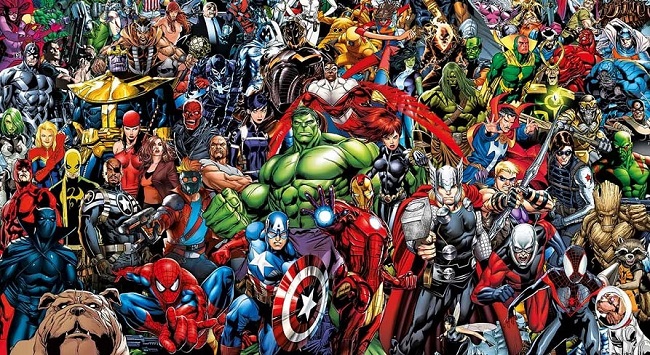
Thus, with good and consistent writing that isn’t messed up, good directors who know what they’re doing, continuity and connectivity can be done right and there isn’t any confusion in the movies. The MCU did it right until the Infinity War arc unraveled and was concluded, showing all the connections made through different characters and storylines to build up this much more important plot. It was a process done with patience, logic and planning.
However, this strategy centered around connectivity has been so overused by Marvel and the MCU to the point that it has lost its magic. People have become so used to this concept, to all these Easter eggs dropped in all MCU movies that they might have grown… desensitized. It doesn’t faze them that much anymore, as this strategy has long and completely lost the element of surprise; the more MCU movies came out and used the same strategy over and over, the less excited it made people. Connectivity has become borderline ordinary, planned and no longer natural. It almost feels… obligatory. Just like foreshadowing, the concept seemed to have worn off. Because there’s nothing new and fresh behind that would break Marvel and the MCU’s routine, which they’ve relied on for so long that they might have grown too scared to drop it. They’ve grown extremely dependent on this concept, despite the coherence of their plots. It had been mostly successful so far for pretty much all of their movies until now, so why break connectivity for new and potential readers?
There might be several reasons other than a successful and strategic method for hanging onto connectivity. One of them could be… the creation of a brand new storyline that has absolutely nothing to do with any of the canon characters from Marvel comics to the MCU, a brand new character with its own plot that can’t be connected to the web woven by the MCU and Marvel comics.
An independent character choosing another path rather than being included in the successful universe created by Marvel comics, for example?
Breaking connectivity would imply having to figure out something for new and potential readers that would ease their introduction to the super-hero genre. This would be a huge change in this genre’s strategy, which could be disorienting for the writers, and while they can most certainly do that, the fact that they’d have to change their tactics to get new readers to engage with their comics would probably throw them off their game. Changing a whole routine that has been the key to your success for so long would seriously affect the system, the way the writers would work on their storylines… in other words, their plots, despite being engaging and well-written, might have become codependent on each other via their connection and foreshadowing.
A change in super-hero series such as Marvel comics and the MCU is a huge deal. Would it be a deal-breaker? Who knows? They wouldn’t until they’ve tried a new tactic that would help potential new readers to engage with their comics and their movie adaptations.
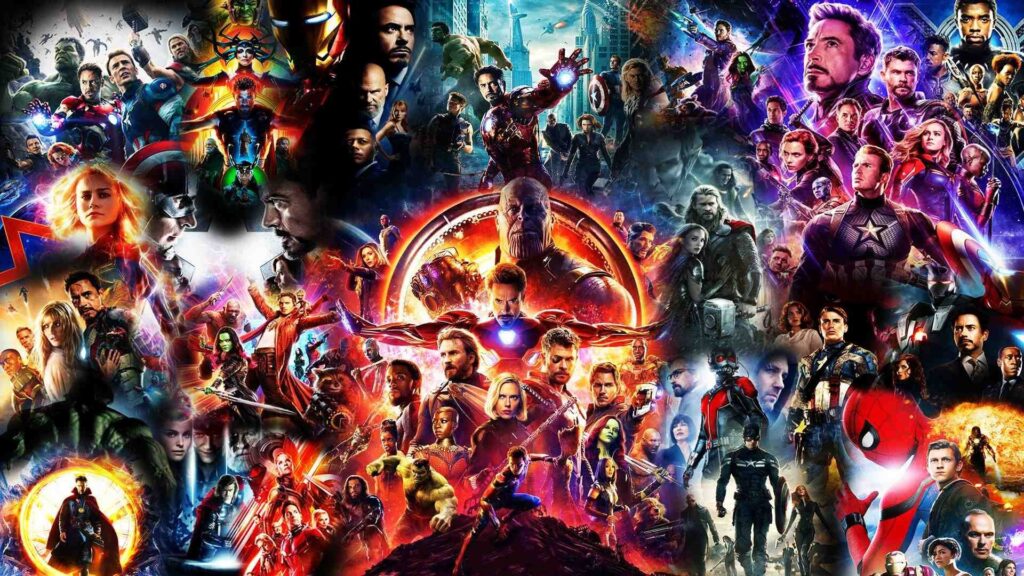
Therein lies the problem. Super-hero series can have multiple storylines that can be connected, should their writers decide so. They can turn these plots into a confounding mass of connectivity in one universe, with so many alternate dimensions and alternate characters, in which new readers will immediately get lost. They wouldn’t really be sure where to begin because there’s an order that’s been set. And even so, that order would discourage any newcomer to the series, because connectivity isn’t ever a constant process in super-hero comics such as Marvel or DC. It goes in every direction and continues in a loop with diverse outcomes.
This is the main issue with the MCU and the DCEU.
Bottom line, there’s a very important question that needs to be asked: should comic book writers from Marvel and DC comics take notes from manga artists and also independent comic book artists to manage continuity and connectivity in a better way? Maybe they should. It would bring something new and fresh. It would be a change for once. The ball is in their court to engage their new readers and encourage them to start their series, just as it would be in their best interest change tactics to sell their projects. How can super-hero comic book writers not fall into the trap set by the concept of connectivity if overused?
The solution might be to conclude a character’s story once and for all, say goodbye, move on, then create a new one with a new storyline. Although the character’s popularity could be an obstacle for the writer because the fans love them, every story has to eventually end at some point. Batman’s story would have to reach a conclusion, so does Spider-Man’s, so does Superman’s – meaning, no more rewrites, no more connection to everything else and no more storylines for them. Just one end. Connectivity would have to reach the end of the line with them as well.
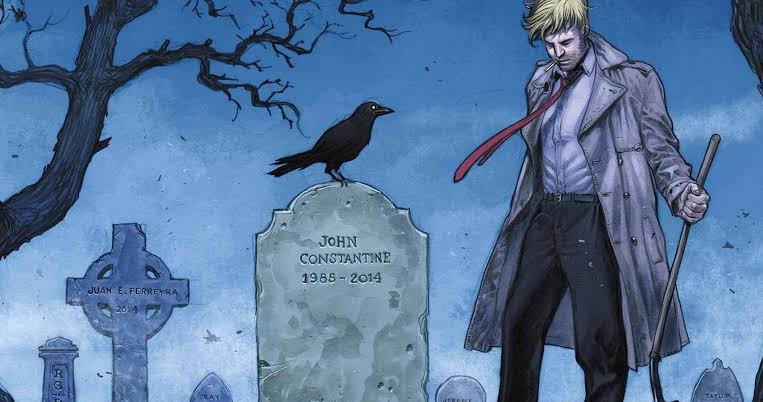
Or there could be another solution that might be just as simple as it could be devastating: comic book writers and the MCU could just stop relying on their gigantic web of connections so they could choose one path and walk it. Not every movie needs to be connected, as it could go on its own way without having to refer to other movies and characters to not break continuity and connectivity. Flexibility should still be a choice for writers, just as the freedom to do something new and different with a character without disrespecting the source material and getting a rewrite. Connectivity shouldn’t be a trap and should always have an exit to see the end of the tunnel.
Moving forward for the MCU would mean figuring out a new strategy for their movies. Breaking all connections between them could lead to creating new storylines that haven’t been thought of before. The Civil War and Infinity War arcs having been done already, the MCU can now get interested in characters they haven’t put into the spotlight, give them life without having to link them to the Avengers and the previous story arcs (the Infinity War and the Civil War). Putting an end to Iron Man, Captain America and Black Widow meant concluding their stories once and for all, so the same could happen to other characters. There are still many other characters that haven’t been interpreted in the MCU and have no ties to the Avengers storylines, so moving forward with them and figuring out a new strategy for their movies or TV shows would be a fresh start that could benefit them.
What do you think? Leave a comment.
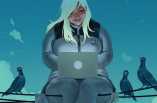
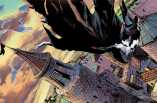

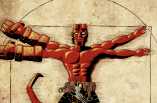
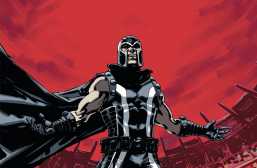
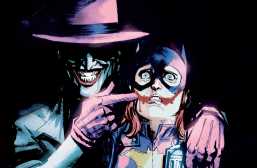
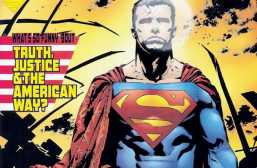
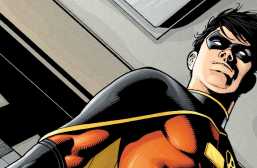
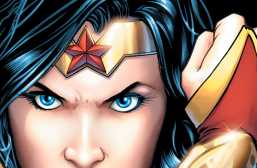
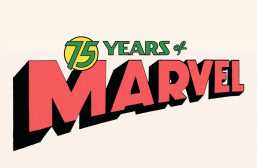
I find it hard to believe that Marvel will maintain the public interest after the heavy investment made in the first wave of the MCU which seemed to come to a natural end. I think fatigue will set in terms of public interest especially after Corona (which itself feels like a total reset).
There’s absolutely no sign of people getting bored with the MCU.
I know of many people who consider Endgame to be a logical end point for their enjoyment of the MCU.
It will be interesting to see what actually does happen, as I don’t think the new films will be as successful (but that doesn’t mean they will do badly)
it has not come to an end.
phase 4, 5 seems to be building on ‘endgame’s legacy as well as with the disney+shows linking up with the movies as well.
It’s the kids who maintain interest.
Sure, there are people who will fall off as their favorite characters leave the franchise over time. But there are always more people coming into the franchise new, so it will surely maintain popularity for a long time to come.
Let’s remember, The Mighty Marvel Multiverse has existed since Stan the Man proclaimed it so back in the 60s. There are universes that have been born and destroyed since then – anyone remember the “Ultimate” universe?
Yes, there are going to be bad movies and good movies in any long running series (James Bond anyone?) but that doesn’t mean they don’t fit the canon. Let’s, for a moment, consider Ang Lee’s Hulk, a movie that explored our green friend’s psyche very well despite its other flaws, and in some ways is a stand out (and incidentally echoed Kirby’s original art pefectly in the desert sequence.)
When Marvel does a Fantastic Four properly we can be grateful that we can move straight into the action and know that the FF will be placed up against Galactus in a universe of Sentinels, without having to revisit an origin.
With a multi-verse we have different iterations – and the first Dr Strange movie demonstrated that quite ably with Dormammu’s bargain.
Plus, we need to trust Disney. In 20+ movies they haven’t done badly at all and their future slate looks pretty good too.
Apart from the devil dogs I thought Ang Lee’s Hulk was the best. I liked both Norton and Ruffalo but Bana did suppressed rage and internal conflict so well.
The art direction was outstanding also, with some breathtaking transitions.
It was really underrated and had a great score.
Well Marvel obviously remembered the Ultimate universe, as that’s basically the version of Nick Fury that we got in the films, which isn’t that surprising as the Ultimate Nick Fury was based on Samuel L Jackson in the first place.
Still, The Multiverse of Madness could be a very good excuse for Marvel to get creative – anyone for Spider-Ham in a post-credits scene, purely to weird out Dr Strange?
The point about all the fractal franchising is that it requires audiences to either not care about continuity very much or become obsessive about keeping the writers on their best game.
The studios don’t really care when educated adults complain about a lack of cohesive narrative, these are superhero films that rely on continuous on screen action and not plausible storytelling. There is a fan community, although I very much doubt its numbers extend to the tens of millions these films need to break even at the box office.
The MCU effort of sustaining coherent plot-lines across 20+ films and spin-offs is magnificent and unique, but I also think there’s plenty of room for shows like the Mandalorian which offer more of a stand-alone, stylistically finessed take on a particular fictional world.
That series (Mandalorian) has of course also make quite a few efforts to remain “in canon”- some more successful than others – but I think in the case of the Star Wars canon too much attempted coherence just leads to repeated story-lines given the relatively limited focus of the originals.
In their case I think the “parallel universe” approach would offer far more opportunities.
The Star Wars universe seems to thrive once they get away from any kind of rigid structure. Too much reliance on the Skywalker Family and the Empire/Rebellion dynamic is what doomed the series, IMO.
I think it also suffered from a lack of focus in defining what “the dark side” was supposed to represent. Essentially in the film series it became an outdated cult misused by an old man in search of immortality.
Some of the cartoon series’ treatment of Darth Maul or the more outsider Vader material has hinted at more nuanced interpretations but in terms of the canon that has always seemed to me to be a big deficit.
We got a totally unnecessary “Black Widow” movie. That did nothing but introduce new characters who will be in TV shows. We are getting a “Black Panther” where the main character won’t be apart of it due to the sad passing of Chadwick. It’s all so soulless and pointless. Do we need another Thor movie? DC are starting to show how bland and stale Marvel is. DC is where it is at.
Ah, I remember watching the trailer of the “Black Widow” movie, which I ended up watching. I agree with some things you’ve just said: it was unnecessary, as it added nothing to her character and story. It was just Natasha tying up some loose ends, passing on the mantle to a ‘sister’ (who has never been mentioned in the previous movies, so Yelena was retconned). This movie… should have either come out right after “Civil War” or should have never come out at all.
Without Chadwick Boseman, I don’t really see the point of making another “Black Panther” movie either. His character could be laid to rest once and for all alongside him. Replacing him seems kind of… disrespectful.
If you believe that Marvel has become ‘bland’ and ‘stale’ and that DC is where it’s at… then what do you say about their upcoming projects involving this new ‘Supergirl’? What do you think about DC replacing Henry Cavill for the role of Superman – which has been done and redone and redone as well, like Batman? Do you think DC still has it together with the flops that were “Wonder Woman 1984”, “Justice League”, “Batman v. Superman: Dawn of Justice” and their new projects?
I agree with some of your argument here, but not all. The MCU is starting to resemble a production line, and they’re making fewer products that I’m actually interested in. When you do watch something, you don’t really get the sense of an ending or a resolution anymore. Instead, they prod you with a big stick in the direction of the next thing that you’re expected to watch. In a way, they’ve become a victim of their own success.
The DCEU, on the other hand, has never been in that position. I suspect that they never will now. The mismanagement of the DCEU led to all the wrong people being hired, and this led to a slew of mediocre films that didn’t catch on with the public. Anything they attempt has already been done by Marvel, and they’ve just released one of their most highly-acclaimed films by getting one of the MCU crew to make it for them. They managed another highly-acclaimed film by ripping of Scorsese and hoping people wouldn’t notice.
There’s really no need to invoke a multiverse or establish a canon in the first place.
If you want a deeper undertanding of Multiverse Theory I can highly recommend the episode of Family Guy.
That is: Road to Multi-Verse
Family Guy: Season 8, Episode 1
Marvel comics had the What If…? series back in the 70’s that allowed people to accept that comics characters are not real and any fictional arrangement is possible. It’s only recently that they are expected to hold a singular, linear timeline. The comics world always played with it without needing parallel- or muilti- verses to hold them up.
I want a movie that acknowledges that Ghostbusters, Sex and the City, Cloverfield, Die Hard 3, When Harry Met Sally and The Day After Tomorrow all take place in the same continuity.
Great idea.
Also imagine the scenes as Jennifer Aniston feels overwhelmed by the amount of people crowding into ‘Central Perk’ to escape the monster’s rampage, none of whom are ordering coffee.
Great work on this article.
The best science fiction keeps it simple. Sometimes it doesn’t even have to explain itself. It presents a “reality” and the story takes off from there.
The problem with these bloated franchises is that have to keep a revenue flow. It all becomes contorted. It is writing by committee. And it shows.
The element of multiverse and time travel can be the death knell of a story. It removes all jeopardy as any event can be reversed. It is perfectly ridiculed in Bill and Ted’s Bogus journey.
The most animated discussions I have with my children are about the Star Wars franchise. We are united in our incredulity that Disney could have made such a mess of them. I won’t go as far as saying that it nigh-on “criminal neglect”, but the contempt Disney has shown for the fans of Star Wars is really quite something.
I have never understood why filmmakers/companies didn’t notice that any prequel is boring because the audience knows who lives and who dies. ( I guess that’s why some have decided to write that its in a parallel universe, so the characters futures can be different). But your right if time travel is introduced, those cleverer ones in the audience will notice things can be done to change whatever happens -doing that does produce other problems though for a character…changes to their ‘futures’ and pasts etc (agreed re Bill and Ted..better movies than any of these po-faced superhero movies).
I’m not sure that you can blame Disney for the Star Wars mess considering that The Phantom Menace is nearly 25 years old, while The Mandalorian is pretty fresh and new.
I am impressed with the confidence in which Disney launched into a billion dollar trilogy without bothering to work out a plot beforehand.
I like Marvel and they aren’t doing anything that hasn’t already been done successfully to a degree in the comics but I do think there is scope for older fans to find the whole multiverse thing a bit wearing if they’re not careful….
When you watch a film to see if it is right rather than to enjoy the adventure you’ve lost the plot.
I imagine if you like franchise films and it completely removes any element of jeopardy if characters who are killed off can return in subsequent films. You don’t have to be some kind of obsessive film nerd to spot when a major character is killed and then magically comes back. The same goes for complete changes in backstories that may have been significant in one movie and then completely changed in another.
A bigger problem is that franchises are just so unimaginative, I’d much rather watch something new than a rehash of the same old characters again and again.
I must admit I was slightly disappointed that The Man in the High Castle didn’t manage to work in the Captain and Maria and a large number of children. I mean, surely it was canon for WW2?
how dare you invoke that wonderful series with the slop that is the comic book universe?
DC actually came up with the idea of a Multiverse in the sixties with the annual team up of the Justice League and the Justice Society, who came from Earth 1 and Earth 2. This allowed them to bring the Golden Age heroes into the Silver Age era.
I’m assuming blockbuster franchises got complicated when people stopped renting DVD’s and VHS tapes back in the noughties.
I’m looking forward to Howard the Duck’s inevitable induction into the Avengers. What could possibly go wrong, again? Duckman, on the other hand, would be a great addition to the DC multiverse.
He’d just spend all of his time making inappropriate comments about Wonder Woman.
I’d have Spiderman teaming up with Batman to foil an invasion of Aliens, with Luke Skywalker coming forward in time, and Jean-Luc Picard backwards, to join in the melee. Get James Bond involved aswell.
Isn’t one of the problems that all these universes are pretty much the same – there is not a lot of invention?
Is Star Trek governed by fundamentally different rules than Star Wars? Technology is generally That Blue. The plots and the character interactions generally are similar. The films have evolved into a gloomy dystopia. There is a distinct lack of imagination about the future, as if Hollywood has determined what is canon across all films.
I don’t mind an occasional multiverse, because it’s a viable scientific theory.
This is actually retconning fandom, isn’t it?
It seems a fan is someone who not only knows the entire chronology of everything but has to tell himself (or occasionally herself) that it’s meaningless because it might now be in an alternative universe where everything is different and gravity spits you into the air.
Whereas the non-fans like me are leading the way in not bothering what happened in the last 39 movies anyway. Our day has come!
This happens whenever an author writes or films more than one story about any character. There have been at least two fully annotated versions of the entire Sherlock Holmes canon, in which literature and history professors not only tell us when and where each story took place, but identify precisely which concert Holmes and Watson attended while on a particular case. While most fans just enjoy reading the stories.
More chronologies and maps of Middle Earth have been produced by fans than Tolkien ever thought necessary. Even though he went to far greater lengths to create a coherent world than almost any other fantasy author.
Countless people even try to collate a definitive timeline and geography for King Arthur, from ‘source’ material consisting of wholly independent stories sharing only one or two similar characters or themes.
It seems the human drive to make sense of the world by systematising everything around us, from animals to stamp collections, extends to our fantasies.
I was never much interested in this stuff, at least after Adam West’s Batman on TV in my pre-teen years. However, I quite enjoyed WandaVision until they started flying and zapping through their fingertips while “explaining” what happened with reference to a backstory of which I had no knowledge.
But since it was quite stylish and witty, I thought I’d immerse myself in the genre so that I could understand that backstory and appreciate what everybody else was apparently enjoying. I have now given up this endeavour after one and a third Marvel films. Explosions instead of dialogue, incoherent action sequences, one-dimensional characters acting with no plausible motivation. I found it difficult to see talented performers and technicians pouring their efforts into these boring stories.
I’m in pretty much the same place. I started off enjoying the Marvel movies, now I feel like I’ve already seen them – even the ones I haven’t. They’re mostly very superficial stories with little substance – nothing wrong with that, movies designed to entertain are a wonderful thing. I do find that the Marvel menu is very minimal when it comes to narrative variety or complexity. A friend of mine asked if I wanted to go and see Black Widow with her and the idea of spending two hours having to watch another story-by-numbers was horrific to conceive of. As for the DC movies – Wonder Woman was fun, as was Shazam!, but the rest has been (IMO) just woeful.
Amazing that you know all about 20+ films on the basis of watching one and a bit of them.
Watch ‘civil war’.
Really interesting article! I think the connectivity in comic books are their greatest pitfall – as you said, trying to follow storylines from one piece of media but having to connect it to one or more other storylines from other parts is complex and makes it easy to lose engagement or momentum. I think the MCU pulled this off well – enough easter eggs for longtime fans to feel spoken-to, with enough context and revitalising that new fans could also engage easily.
The issue of the MCU’s ‘natural end’ with Endgame is also interesting – as an MCU fan my interest dipped significantly with the introduction of the multiverse. I’m just not someone who loves crossovers that much, but I do think that the multiverse was a very clever way to keep things feeling (at least moderately) fresh. However, I wonder if, like comic books, it’s going to get harder and harder for new fans to engage with the timeline and connectivity as a whole as more and more movies are added to the collection.
So the multiverse is just something invented by Hollywood studio executives to justify producing endless sequels and remakes. Am I understanding this correctly?
No, not at all.
The concept of the multiverse has existed in the comics since the 60s.
The studio execs may be using it to justify producing endless sequels, but they didn’t invent it.
The main problem with goofing around with endless multiverse stuff is that it gradually drains the significance out of any given event. The tragedy of a favorite character getting killed is rendered moot when you know a sufficiently popular-with-the-focus-groups character is going going to pop right out of some Space Wormhole and keep doing what they do; ditto the satisfaction of seeing some iconic villain finally get it in the neck.
I don’t think Thanos is coming back anytime soon.
I didn’t watch any of those modern movies or spin-offs, but I bet they are full of CGI and computer generated graphics.
Stories that fail to end are journeys to nowhere.
I love watching and re-watching the Marvel movies, as well as many other impossible, fantastical, contradictory series, full of their unavoidable plot holes and inconsistencies. Just re-watched captain America last night.
There was a rumour from a few years ago that the culmination of these superhero films was going to be ‘Avengers v Justice League’, but as the DC films didn’t perform well financially, that idea was shelved.
I think the studios made the right decision.
That would have needed a massive deal set up between Disney and WB, more complicated than the one that allows Disney to use Sony’s Spiderman in their films.
James Gunn, who has directed films for both studios, said he’d raised the possibility of a Marvel/DC crossover flick with the suits, and both were open in principle to the idea.
I think you are right to doubt its likelihood though.
Amazing!
It seems like the MCU has a chance to spice things up and gain serious traction again with the concept of the multi-verse. Other than that, it’s hard to continue after basically having a finale like Endgame, especially when the first movies to come out afterwards were so-so films like Black Widow and Eternals.
i do really enjoy the MCU, and absolutely loved the first few phases with the avengers. I was able to keep up with it and enjoy it. I still love MCU movies and shows but I feel like its all starting to blur over and trying to keep the storylines in sync is getting a bit much. The movies are one thing but trying to then figure out where the TV series go and where the universes meet is starting to get to me a little bit and is taking away from the enjoyment of the characters and storylines.
Glad you mentioned the most recent Spiderman, as this is a great example of multiple universes converging.
The MCU today is a massive and interconnecting web of Films and TV shows which, as you stated flow together pretty seamlessly. At the same time, I can see how people will lose interest either due to fatigue or simply not caring about the characters that Disney chooses to introduce. I can already see people falling off – not keeping up with TV Shows or skipping movies they aren’t interested in.
The DCEU on the other hand is an outright mess when you try to compare it to the MCU. The iterations of characters born out of the “Snyderverse” are a bit messy and not quite true to their comic representations but I think all hope is not lost. DC seems to have realized they should just do what they want and make content fans will enjoy (Suicide Squad 2021, Peacemaker, The Batman). I’m hoping that the DCEu is planning on reconciling and fixing some of their blunders with the upcoming Flash movie as it seems to be a flashpoint story, which could have similar effects that Loki and Spider-Man: No Way Home had on the MCU.
Overall you make some interesting points and as a big fan of both Marvel and DC, I’m excited for the future of both of these franchises.
I love this. Continuity is great for the devoted fans who see all the movies. Though I do feel bad for folks who only catch the occasional flick. Those references will go right over their heads.
I really enjoyed reading your views on ‘ending’ characters definitively, as well as the thought that not everything needs to be connected. If we had more comic book movies that stood alone without needing to include other superheroes (references would be fine) and a greater story (like The Batman, Joker, etc), the movies might become more memorable rather than all blurring together (especially for casual viewers!).
I hate having to watch all the movies to catch the connecting line. Im older now and have less time. I really want to be invested. I’m glad you pointed out the storyline fatigue that can happen with the constant interweaving going on